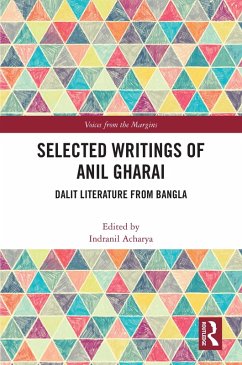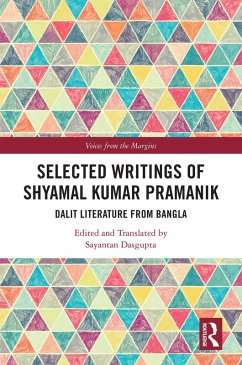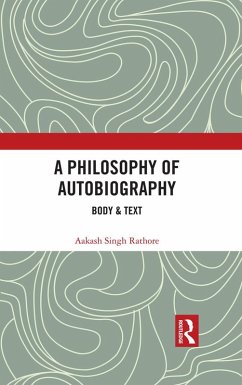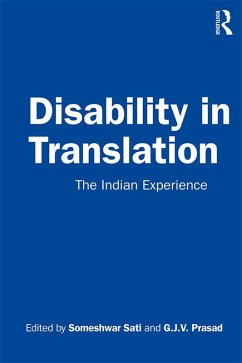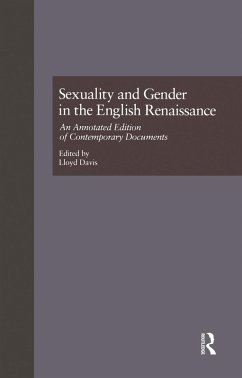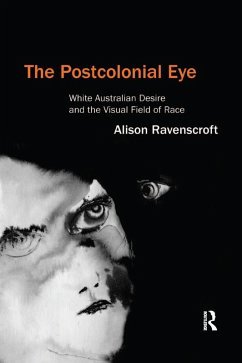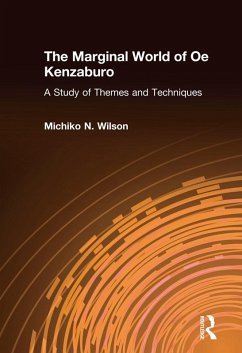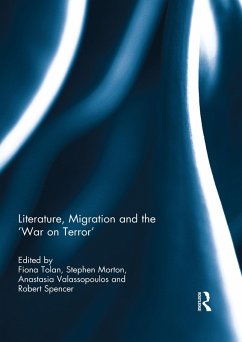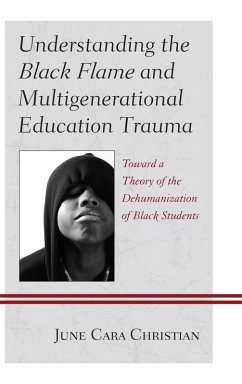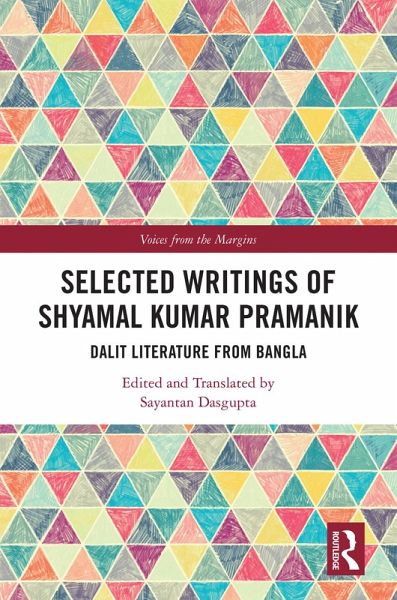
Selected Writings of Shyamal Kumar Pramanik (eBook, PDF)
Dalit Literature from Bangla
Redaktion: Dasgupta, and Translated by Sayantan
Versandkostenfrei!
Sofort per Download lieferbar
39,95 €
inkl. MwSt.
Weitere Ausgaben:

PAYBACK Punkte
20 °P sammeln!
Shyamal Kumar Pramanik is one of the most powerful writers of the Bangla Dalit literary movement. His evocative fictional world throws into relief the lives of the downtrodden in in contemporary India. This volume brings his fiction to a new readership by presenting English translations of a selection of his most powerful stories.This book is part of the Voices from the Margins series, which seeks to enhance the visibility of literary texts and traditions from various Indian languages and also to bring Dalit literature to the center stage. Pramanik focuses extensively on lives and lifestyles o...
Shyamal Kumar Pramanik is one of the most powerful writers of the Bangla Dalit literary movement. His evocative fictional world throws into relief the lives of the downtrodden in in contemporary India. This volume brings his fiction to a new readership by presenting English translations of a selection of his most powerful stories.
This book is part of the Voices from the Margins series, which seeks to enhance the visibility of literary texts and traditions from various Indian languages and also to bring Dalit literature to the center stage. Pramanik focuses extensively on lives and lifestyles of the people in the Sundarbans, the largest mangrove forest in the world and an ecologically fragile zone. Drawn from personal experience, many of these stories paint in vivid colors the deprivations that define life in this part of the world. His fiction highlights the workings of caste.. The translations in this anthology are buttressed by an interview with the writer which includes his reflections on his life, society, and his writings, opening up new possibilities of understanding his work in its larger social context. The book also creates an academic framework within which Pramanik's fiction can be read and critically analyzed.
This critical edition will be of interest to students and researchers of comparative literature, South Asian literature and culture, modern Indian literature, Dalit studies, culture, history, and sociology.
This book is part of the Voices from the Margins series, which seeks to enhance the visibility of literary texts and traditions from various Indian languages and also to bring Dalit literature to the center stage. Pramanik focuses extensively on lives and lifestyles of the people in the Sundarbans, the largest mangrove forest in the world and an ecologically fragile zone. Drawn from personal experience, many of these stories paint in vivid colors the deprivations that define life in this part of the world. His fiction highlights the workings of caste.. The translations in this anthology are buttressed by an interview with the writer which includes his reflections on his life, society, and his writings, opening up new possibilities of understanding his work in its larger social context. The book also creates an academic framework within which Pramanik's fiction can be read and critically analyzed.
This critical edition will be of interest to students and researchers of comparative literature, South Asian literature and culture, modern Indian literature, Dalit studies, culture, history, and sociology.
Dieser Download kann aus rechtlichen Gründen nur mit Rechnungsadresse in A, B, BG, CY, CZ, D, DK, EW, E, FIN, F, GR, HR, H, IRL, I, LT, L, LR, M, NL, PL, P, R, S, SLO, SK ausgeliefert werden.




